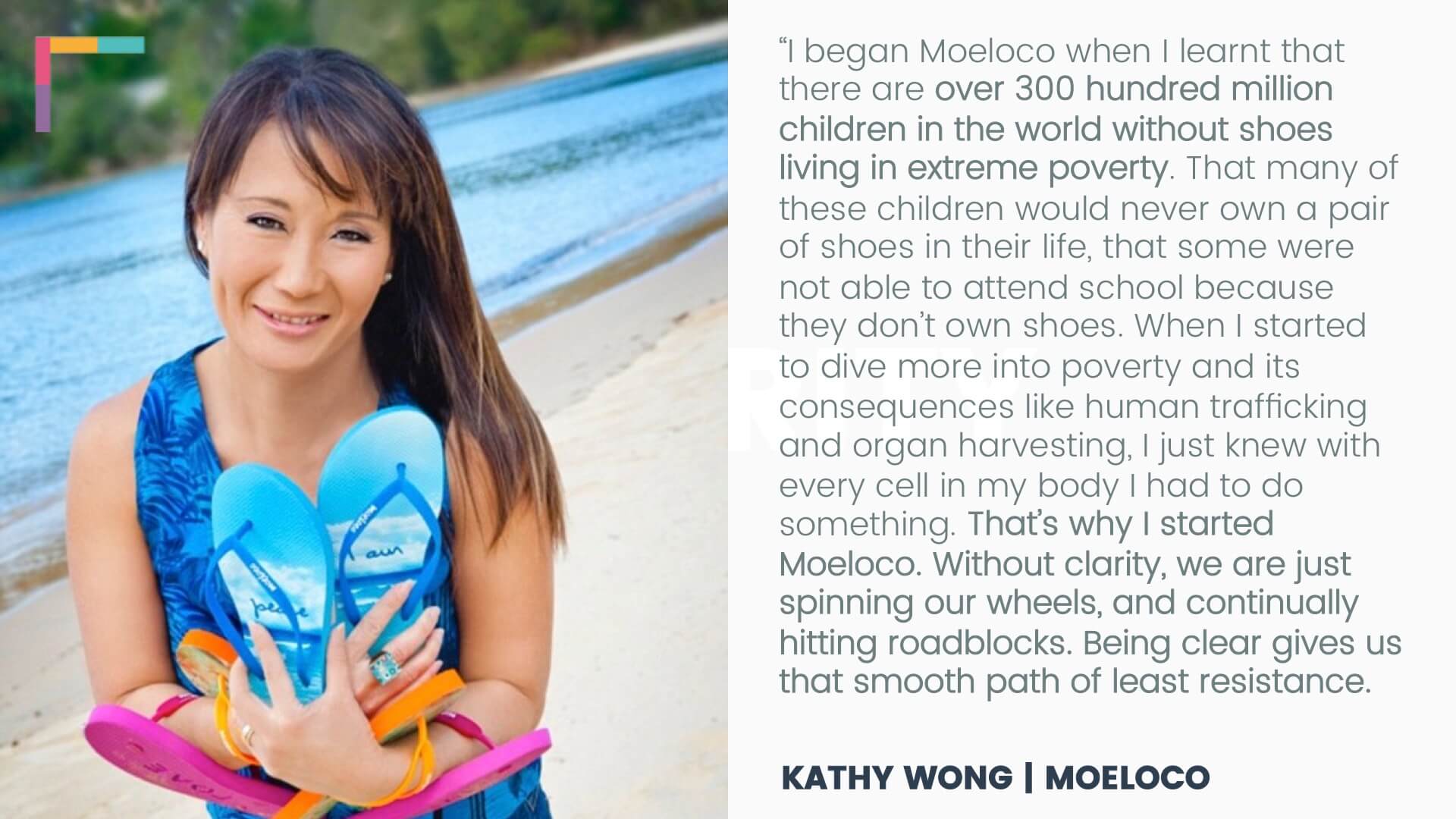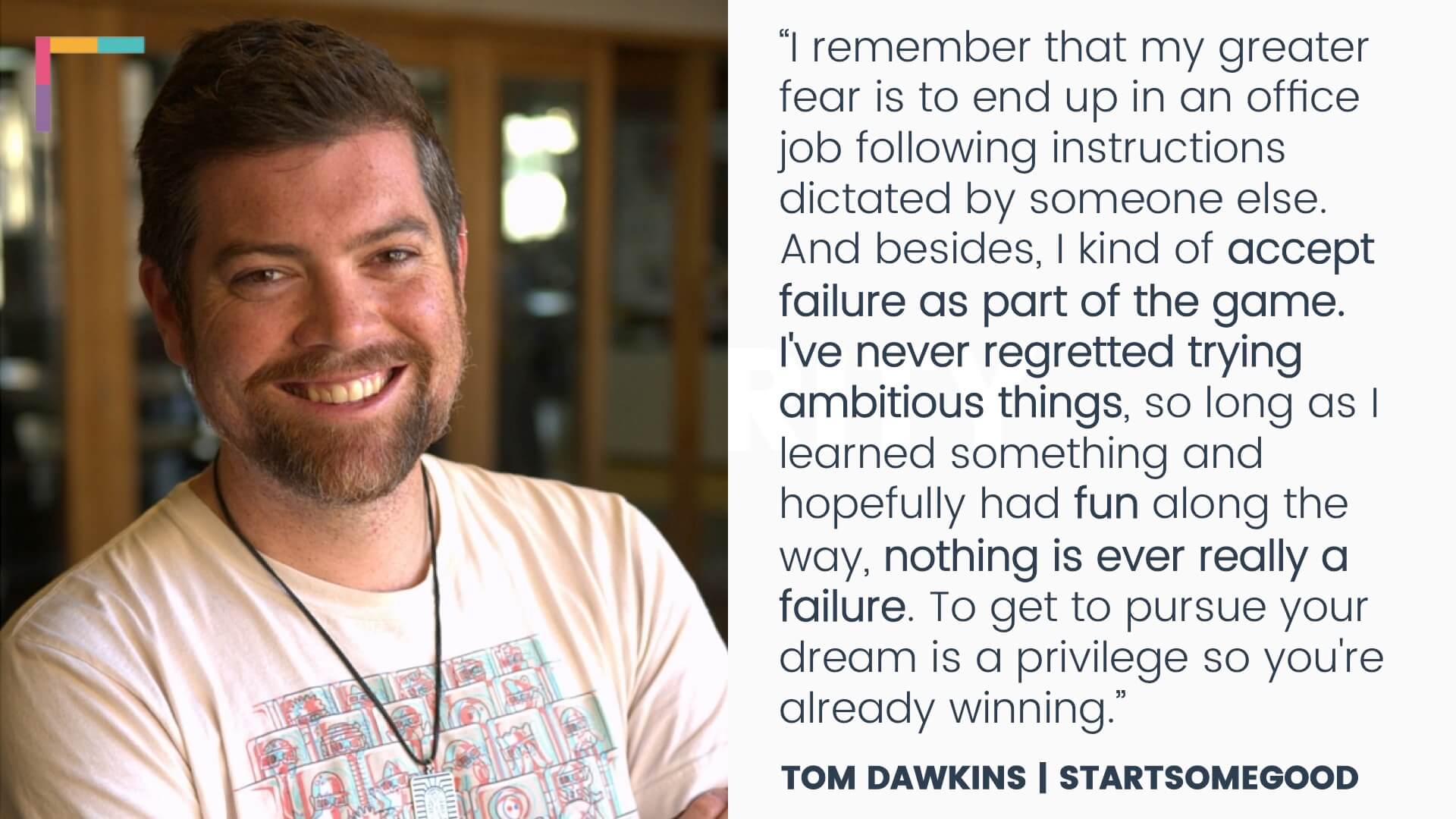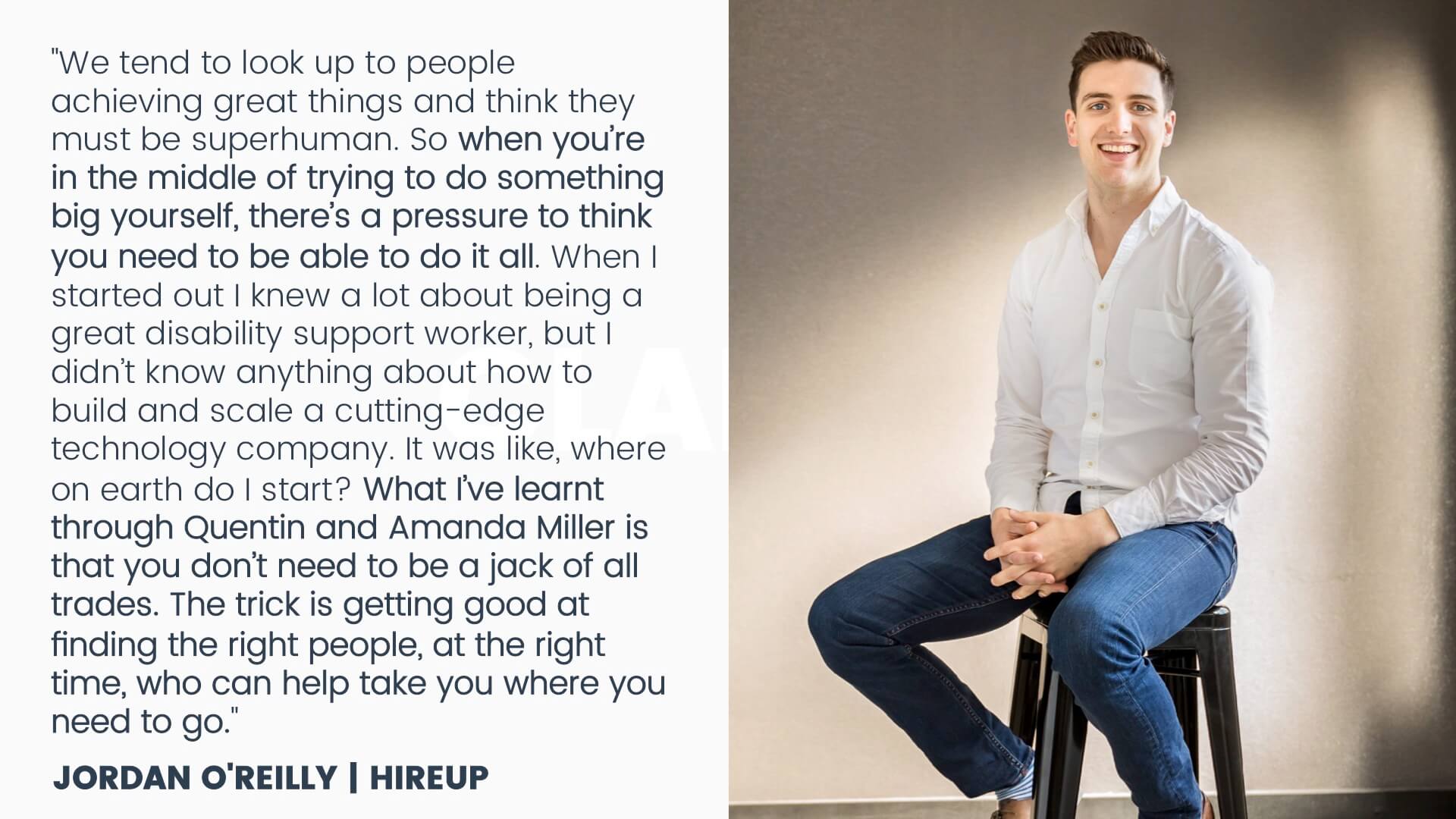The Four Cs of Effective Social Entrepreneurship

Every day, through Social Change Central, I get to help aspiring social entrepreneurs find the support they need to turn their ideas for social change into real social impact. As the year comes to a close, I thought I’d take moment to share what I’ve learnt, which I’m calling the 4-Cs of effective social entrepreneurship. These four things have come out of personal experience, as well as speaking with countless social entrepreneurs over the years, both in Australia and from around the globe.
Ok so let’s get into…
CLARITY
When I speak to successful social entrepreneurs about what they think have been the keys to their effectiveness, many say that the first step was achieving clarity – in particular, a clarity of vision or purpose.
Without clarity, focus is lost, decisions bottleneck, and goals for social impact get sidelined.
But achieving clarity is easier said than done.
A starting point for getting clarity is to define your WHY? What’s your WHY for starting a social enterprise? WHY are you in business? WHY do you do what you do? And WHY is what you do needed? For effective social entrepreneurs their WHY is the driving force that keeps them going especially when there are obstacles and setbacks to overcome.
Kathy Wong founded Moeloco after learning that there are over 1 billion children living in poverty. It was this alarming statistic that inspired her to take notice and take action. Kathy has absolute clarity that the reason she is in business to give children in need the best start in life.

Lauren Shuttleworth emphasises the importance of clarity in decision making by helping to block out distractions and stay on course.

Once you have clarified your purpose, you are then able to confidently share it with others – your team, beneficiaries, customers and funders. Marc Andreessen summed this up perfectly when he said: “The difference between a vision and a hallucination is that other people can see the vision”.
But clarity is about more than just vision and purpose – among other things, it also about having clarity on your market, clarity on how you measure your impact, clarity on your revenue model and clarity on the value you deliver.
In my experience, the lifeblood of effective social entrepreneurship is having clarity around your WHY and using it to inform your business model.
COURAGE
To be an social entrepreneur you have to be willing to jump into the deep end. And that takes courage. The good news is that everyone has the capacity to be courageous.
One of my favourite Australian social entrepreneurs, Rosie Thomas, says that having the courage to fail is part-and-parcel of social entrepreneurship, and that we can find courage by coming back to our WHY – our purpose, and the impact we want to create.

When I asked the wonderful and omnipresent Tom Dawkins, how he overcomes fear he said…

Like Rosie and Tom, I believe that true courage is not about not being fearless. I think true courage means to proceed and take action, despite feeling uncertain and afraid.
I think that courage is a choice. And because it is a choice, it is available to all of us. Ultimately, each of us are responsible for our own future and a huge part of what that future looks like – especially as social entrepreneurs – will depend on whether or not we choose to be courageous when it comes to doing things that make us feel uncomfortable.
COUNSEL
Nobody succeeds in a silo. If I’ve learned anything from my social entrepreneurial journey, and speaking to countless others, it’s that our choice of partners can make or break a venture – be it a life partner, co-founder, team member, mentor or investor.
The third of the 4-Cs is Counsel, which I define as advice and guidance.
The explosion of entrepreneurship has seen a resurgence in the mentor-mentee relationship. But mentorship has been around for centuries as a way of passing on knowledge and skills – Socrates had Plato, Michael Ross has Harvey Specter, Robin has Batman.
Mentors and advisors play an instrumental role in keeping effective social entrepreneurs grounded, holding them accountable, and giving them perspective.
Another one of my favourite social entrepreneurs Jordan O’Rielly, speaks with admiration about his advisors Quentin and Amanda Miller, who have taught him to not be afraid of what he doesn’t know.

I’ve also found that surrounding yourself with like-minded people, in a social-sense, who are are passionate about social change is crucial. It has benefited me in more ways than I can count – from fuelling my inspiration to meeting my fabulous co-founder Anne Lennon. Some of the peer and professional networking groups that I highly recommend you check out include Global Shapers, Social Enterprise Exchange Sydney, Nexus Australia, Young Social Pioneers, Byron to Bundy and Social Impact Business Meet-Up.
I think that as a social entrepreneur there’s a tendency to assume that your grit and hard work alone are sufficient to drive the success of your enterprise. While these things can take you far, they’re not a substitute for good counsel. As they say, “you are the average of the 5 people you spend the most time with.”
Check out Why Every Social Entrepreneur Needs a Mentor & How to Find One.
It is the people we surround ourselves with that make the difference between failure and success. Your job then, is to continuously search for the right companions at each stage of your social entrepreneurial journey.
CAPITAL
The first part of capital is financial capital. Finding funding is one of the biggest challenges faced by social entrepreneurs. You can have what you think is the best idea in the world but without the some money to make it happen, all you really have is an idea.
Your options get thin when your business is focused on maximising social impact as many traditional investors view social impact as a financial cost and therefore a lousy investment decision. To make things even more difficult, for-profit social enterprises are ineligible for funding from many grant-makers, trusts, and other philanthropic foundations which are limited to funding organisations with charitable status.
But it’s not all doom and gloom. From competitions to crowdfunding, there are still a range of ways a budding social entrepreneur can get the funding they need to convert their passion and ideas for social good into real social impact.
To help you, we’ve compiled the top 10 funding opportunities for social entrepreneurs.
The second part of capital is human capital. I spilt human capital into capacity and competency. Capacity is how much you can do and competency is how well you can do it. Quite simply, effective social entrepreneurs understand they are not able to do it all and are aware of their constraints and their strengths. When you are resource restrained, what differentiates effective social entrepreneurs is that they are excellent at prioritisation and determining which things can be outsourced or delegated without having to give up what they love or do best.
Being a social entrepreneur is hard. But if you’re excited about the idea of building a viable business and changing lives in the process, then I highly encourage you to give it a try… and if you are already doing it, keep going… just make sure, at the very least, you have the Clarity to stay focused and make the best decisions, the Courage to risk failing, the Counsel to point you in the right direction, and the Capital to experiment and grow.
Written by Jay Boolkin, Co-founder at Social Change Central, adapted from his presentation at Sprout Summit 2017.



No Comments